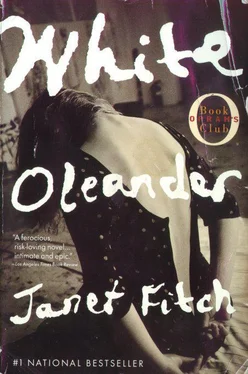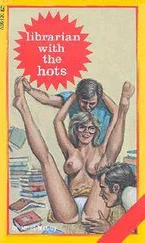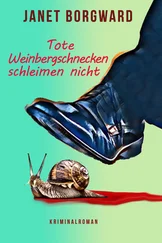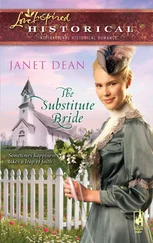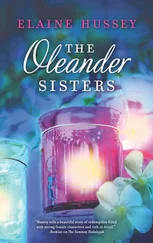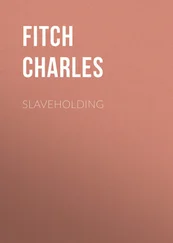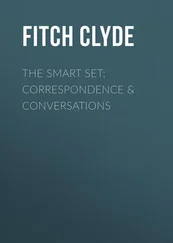Janet Fitch - White Oleander
Здесь есть возможность читать онлайн «Janet Fitch - White Oleander» весь текст электронной книги совершенно бесплатно (целиком полную версию без сокращений). В некоторых случаях можно слушать аудио, скачать через торрент в формате fb2 и присутствует краткое содержание. Жанр: Современная проза, на английском языке. Описание произведения, (предисловие) а так же отзывы посетителей доступны на портале библиотеки ЛибКат.
- Название:White Oleander
- Автор:
- Жанр:
- Год:неизвестен
- ISBN:нет данных
- Рейтинг книги:3 / 5. Голосов: 1
-
Избранное:Добавить в избранное
- Отзывы:
-
Ваша оценка:
- 60
- 1
- 2
- 3
- 4
- 5
White Oleander: краткое содержание, описание и аннотация
Предлагаем к чтению аннотацию, описание, краткое содержание или предисловие (зависит от того, что написал сам автор книги «White Oleander»). Если вы не нашли необходимую информацию о книге — напишите в комментариях, мы постараемся отыскать её.
White Oleander — читать онлайн бесплатно полную книгу (весь текст) целиком
Ниже представлен текст книги, разбитый по страницам. Система сохранения места последней прочитанной страницы, позволяет с удобством читать онлайн бесплатно книгу «White Oleander», без необходимости каждый раз заново искать на чём Вы остановились. Поставьте закладку, и сможете в любой момент перейти на страницу, на которой закончили чтение.
Интервал:
Закладка:
It was a year of mouths, opening and closing, asking the same questions, saying the same things. Just tell us what happened. Tell us what we want to know. I wanted to help her, but I didn’t know how. I couldn’t find words, I had no words. In the courtroom she wore a white shirt. I saw that shirt when I was awake and I saw it when I slept. I saw her on the stand in that shirt, her eyes blank as a doll’s. I saw her back in that white shirt walking away. Thirty-five to life, someone said. I came home and counted roses, and slept.
WHEN I WAS AWAKE, I tried to remember the things she taught me. We were the wands. We hung our gods from trees. Never let a man stay the night. Don’t forget who you are. But I couldn’t remember. I was the disability girl, stones in my mouth, lost on the battlefield, plastic sheets on the bed. I was the laundry monitor, I helped the niece take the laundry to the Laundromat. I watched the laundry go around. I liked the smell of it, it made me feel safe. I slept until sleep seemed like waking and waking like sleep. Sometimes I lay on my bed in the room with the roses and watched the girl in the other bed make scar tattoos on her ashy dark skin with a safety pin, a diaper pin with a yellow duck. She opened her skin in lines and loops. It healed over into pink pillowy tissue. She opened them again. It took me a while, but finally I understood. She wanted it to show.
I dreamed my mother was hunting me in the burnt-out city, blind, relentless. The whole truth and nothing but the truth. I wanted to lie, but the words deserted me. She was the one who always spoke for us. She was the goddess who threw out the golden apples. They would stoop to pick them up, and we’d make our escape. But when I reached into my pocket, there was only dust and dried leaves. I had nothing to protect her with, to cover her naked body. I had condemned her by my silence, condemned us both.
ONE DAY I woke to find the girl from the other bed going through my drawer in the dresser. Looking at a book, flicking through the pages. My mother’s book. My slender, naked mother, alone among the blackshirts. She was pawing my mother’s words. “Get out of my stuff,” I said.
The girl looked up at me, startled. She didn’t know I could talk. We had been in this room for months now and I’d never said a word.
“Put it back,” I said.
She broke out in a grin. Grabbed a page, crumpled it and tore it out of the book, watching me. What would I do. My mother’s words in her scaly-knuckled hand. What would I do, what would I do. She took another page, tore it out and stuffed it in her mouth, the pieces hanging from her blistered lips, grinning.
I fell on her, knocked her down. Sat on her, my knees in her back, the dark blade of my mother’s knife jabbed at her spine. A song in the blood. Don’t forget who you are.
I wanted to cut her. I could feel the tip of the knife in her, slipping into her neck, the indentation at the base of her skull like a well. She lay very still, waiting to see what came next. I looked at my hand, a hand that knew how to hold a knife, how to shove it into a crazy girl’s spine. It wasn’t mine. I wasn’t this. I wasn’t.
“Spit it out,” I whispered in her ear.
She spit out the pieces, her lips buzzing like a horse’s.
“Don’t touch my stuff,” I said.
She nodded.
I let her up.
She went back to her bed and started poking herself with the safety pin. I put the knife in my pocket and picked up the crumpled page, the torn pieces.
In the kitchen, the niece and her boyfriend were sitting at the table, drinking Colt 45, listening to the radio. Having an argument. “You’re never going to see that money, fool,” she said. They didn’t see me. They didn’t see any of us. I got the tape and went back to my room.
I taped the torn page together, taped them both back into the book. It was her first book, an indigo cover with a silver moon-flower, an art nouveau flower, I traced my finger along the silver line like smoke, whiplash curves. It was her reading copy, soft pencil notes in the margins. PAUSE. Upward Inflect. I touched the pages her hands touched, I pressed them to my lips, the soft thick old paper, yellow now, fragile as skin. I stuck my nose between the bindings and smelled all the readings she had given, the smell of unfiltered cigarettes and the espresso machine, beaches and incense and whispered words in the night. I could hear her voice rising from the pages. The cover curled outward like sails.
The picture on the back. My mother in a short dress with long graceful sleeves, her hair cut in long bangs, eyes peeking out underneath. Like a cat peering out from under a bed. That beautiful girl, she was a universe, bearer of these words that rang like gongs, that tumbled like flutes made of human bones. In the picture, none of this had ever happened. I was safe then, a tiny pin-head egg buried in her right-side ovary, and we never were apart.
WHEN I STARTED talking, they sent me to school. My name was White Girl. I was an albino, a freak. I had no skin at all. I was transparent, you could see the circulation of the blood. I drew pictures in every class. I drew pictures on the computer cards, connecting the dots into new constellations.
5
CASEWORKERS CHANGED but were always the same. They took me to McDonald’s, opened their files, asked their questions. McDonald’s scared me. There were too many children, screaming and crying and sliding into pits filled with colored balls. I had nothing to say. This one was a man, white, with a clipped beard like the jack of spades. His hands square as a shovel, he wore a signet on his pinkie finger.
He found me a permanent placement. When I left the group home on Crenshaw Boulevard, nobody said good-bye. But the girl with the scar tattoos stood on the front porch and watched me drive away. Clusters of lavender jacarandas emerged from the ranks of trees as we stitched along the gray-and-white streets.
It took four freeways to get to my new home. We exited onto a street that sloped upward like a ramp. Tujunga, the signs said. I watched the low ranch houses get larger, then smaller, the yards chaotic. The sidewalks disappeared. Furniture grew on the porches like toadstools. A washing machine, scrap lumber, a white hen, a goat. Finally we were no longer in town. We came over a rise and we could see the wash, half a mile across, kids on dirt bikes cutting trails in the open land, kicking up pale plumes of dust. In contrast, the air seemed listless, defeated. We stopped in the dirt yard of a house, part trailer, but so many parts added on, you had to call it a house. A plastic garden pinwheel stood motionless in a patch of geraniums. Spider plants hung from pots on the wide trailer porch. Three little boys sat, watching. One held a jar with some kind of animal. The biggest one pushed his glasses up on his nose, called back over his shoulder, through the screen door. The woman who came through it was busty and leggy, with a big smile, her teeth white and shallow, all in the front. Her nose was flat at the bridge, like a boxer’s.
Her name was Starr and it was dark inside her trailer. She gave us sugary Cokes we drank out of the can as the caseworker talked. When she spoke, Starr moved her whole body, throwing her head back to laugh. A small gold cross glittered between her breasts, and the caseworker couldn’t keep his eyes off that deep secret place. She and the caseworker didn’t even notice when I went outside.
There were no fringy jacarandas here, only oleanders and palms, pear cactus and a big weeping pepper. The dust that covered everything was the pinkish beige of sandstone, but the sky was broad as an untroubled forehead, the pure leaded blue of stained glass. It was the first time the ceiling wasn’t pressing on my head.
Читать дальшеИнтервал:
Закладка:
Похожие книги на «White Oleander»
Представляем Вашему вниманию похожие книги на «White Oleander» списком для выбора. Мы отобрали схожую по названию и смыслу литературу в надежде предоставить читателям больше вариантов отыскать новые, интересные, ещё непрочитанные произведения.
Обсуждение, отзывы о книге «White Oleander» и просто собственные мнения читателей. Оставьте ваши комментарии, напишите, что Вы думаете о произведении, его смысле или главных героях. Укажите что конкретно понравилось, а что нет, и почему Вы так считаете.
